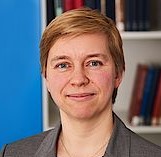Ukrainian Churches and the Implementation of the Istanbul Convention in Ukraine: Being European Without Accepting “Gender”

Regina Elsner is a researcher at the Centre for East European and International Studies (ZOiS) in Berlin.
The Council of Europe Convention on Preventing and Combating Violence Against Women and Domestic Violence, known as the Istanbul Convention, appeared not only to be an instrument of preventing domestic and gender-based violence but also to symbolize a civilizational choice in times of culture wars. On 1 November 2022, the Istanbul Convention entered into law in Ukraine. After years of controversial public debates and two unsuccessful attempts, the Ukrainian Parliament finally ratified the Convention amidst Russia’s aggressive war.
Ukraine participated in drafting the Istanbul Convention and signed it in 2011. Since that time, the country struggled over the ratification of the Convention and its implementation into Ukrainian law and society. One of the main obstacles has been religious communities and conservative groups, which strongly oppose the use of the term gender as well as references to gender identity and sexual orientation in the text of the Convention. At the same time, most religious actors in Ukraine are supportive of the “European” choice of Ukraine and the more general concept of “European values.” Thus, in Ukraine we have witnessed a more complex religious attitude to gender discourse than mere endorsement of illiberalism or “right-wing defiance to West-Eurocentrism.”[1]
